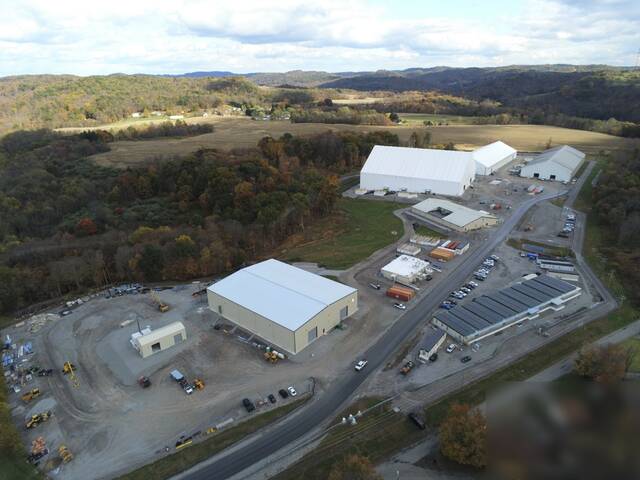The CEO of a Pittsburgh-based specialty steel producer that operates 10 plants in the region and others across the country is lobbying federal officials for an exclusion to the 25% tariff on imported steel that’s been imposed by the Trump administration.
“We can’t allow our hardworking Pennsylvania employees to be collateral damage in a trade war,” Allegheny Technologies Inc. President and CEO Robert S. Wetherbee said.
Wetherbee issued a public plea Wednesday for an exclusion to the 25% tariff. He said that unless one is granted, one of its Beaver County plants could be forced to close two years after it reopened.
“Our Midland plant (in Beaver County) is hemorrhaging money. Unless the administration approves our exclusion request … we’ll be forced to idle it within months,” Wetherbee wrote in an op-ed in Wednesday’s edition of The Wall Street Journal.
Wetherbee said the tariffs don’t have a direct impact on ATI’s other plants in the region, including ones in Brackenridge, Harrison and Vandergrift in the Alle-Kiski Valley; Latrobe; Washington; and two other Beaver County plants in Monaca and Rochester.
But he said the tariffs do have a secondary impact on hot rolling and finishing operations at some of the plants.
The Midland plant was closed in 2016, along with ATI’s Bagdad operation in Gilpin, because of stiff competition in the international steel industry.
The Bagdad operation remains closed and won’t be reopening, Wetherbee said.
ATI reopened the Midland plant in 2018. The plant uses steel slabs produced in Indonesia, and tariffs placed on the material have made it tough for the plant to be profitable.
The Commerce Department denied ATI’s initial application for an exclusion and the company worked with government officials to craft another application, Wetherbee said.
A decision on that application is expected soon, Wetherbee said.
“We wanted to make sure the White House understood the implication,” he said of the op-ed.
Overall, Wetherbee said he supports the tariffs.
“The administration imposed tariffs for good reason,” Wetherbee wrote. “Numerous countries have heavily subsidized their steel manufacturing and flooded the global market with low-cost steel. Many U.S. plants, including some of ours, closed.”
But in the op-ed Wetherbee also called the tariffs “blunt instruments” that have harmed ATI and now threaten the Midland plant, which employs 100 people and provides another 200 indirect jobs.
Wetherbee noted in the op-ed that those jobs are in a “vital swing state.”
The op-ed appeared in The Wall Street Journal a day after the United Steelworkers said contract negotiations between the union and ATI began with a meeting in Pittsburgh.
The USW is seeking a substantial wage increase, pension improvements and provisions to protect health care and other benefits, the union said in an unsigned statement.
“Management proposed below-industry-standard wage adjustments and concessions in other areas of the contract, including health care,” the USW statement said. “They also proposed noneconomic concessions in seniority that would negatively impact every member of the bargaining unit at each USW-represented location.”
The master contract that’s being negotiated affects about 1,300 workers at nine locations.
It doesn’t include the Midland plant that Wetherbee warned was in jeopardy. Those employees are working under a contract that was negotiated when the plant reopened, he said. The Midland pact expires Oct. 31, 2021, according to ATI spokeswoman Natalie Gillespie.
The last master pact that covers most of ATI’s union employees was approved in 2016 after a six-month lockout, the first in the company’s history.
In negotiating with the USW, the company is looking for a contract that allows it to be flexible and ensure stability in its workforce, Wetherbee said.
“It’s a very fluid market,” he said.
Some of the company’s operations are seasonal and others are based on demand. ATI needs to be able to move some employees around to different operations as the market changes, Wetherbee said.
The company also invests in training its employees and wants to ensure it gets its return-on-investment from that training, he said.
In April 2019, ATI landed a $45 million contract for a South American pipeline project that helped its Harrison plant, adding about 50 jobs to its roster of more than 500 employees.
ATI, headquartered at Downtown’s PPG Place, reported revenue of $4.1 billion in the fiscal year that ended Sept. 30, 2019.
ATI produces specialty products for the aerospace and defense industries and also makes products used by oil, gas and electrical energy markets, among others. It bills itself as a market leader in producing specialty metal alloys and forgings.








